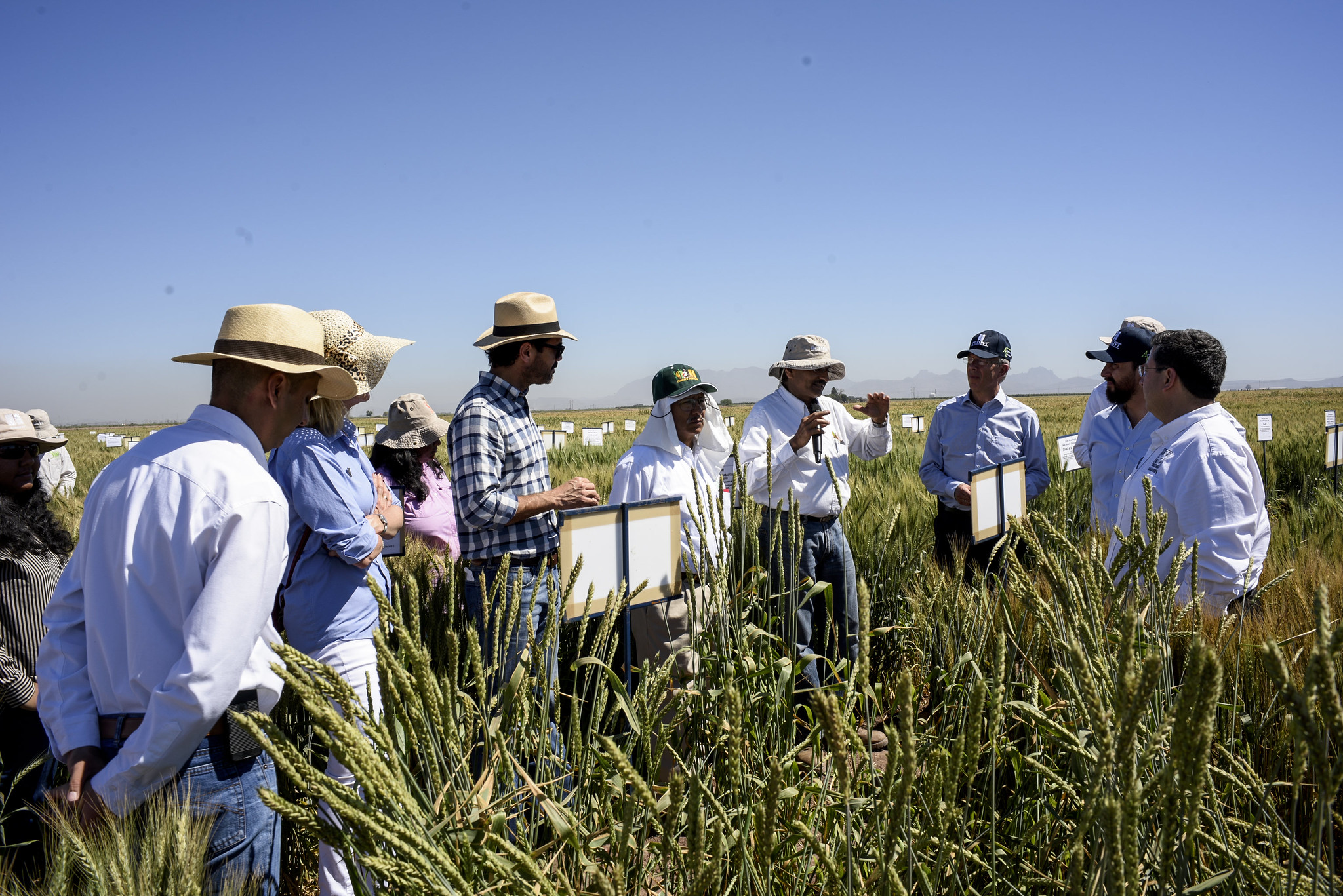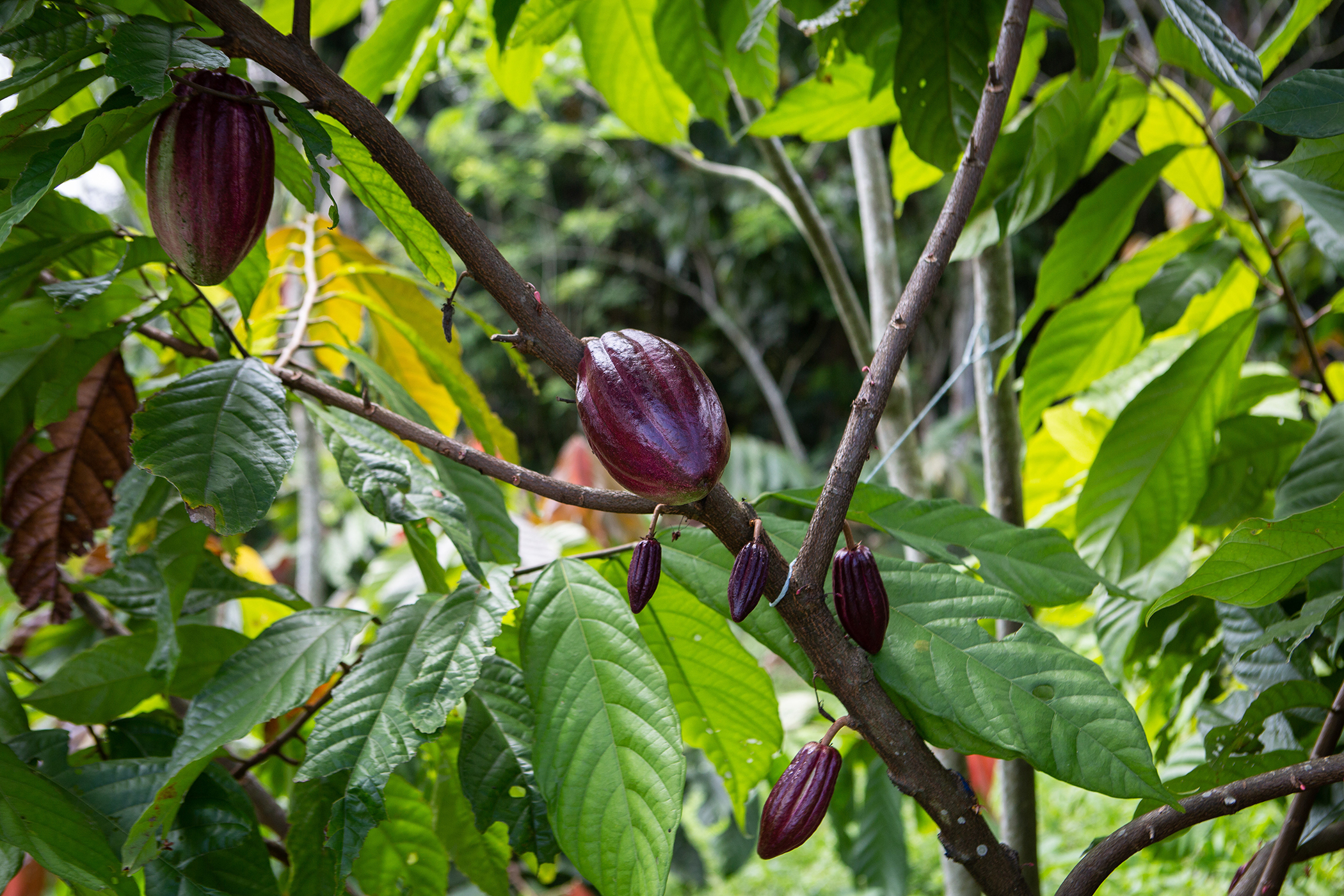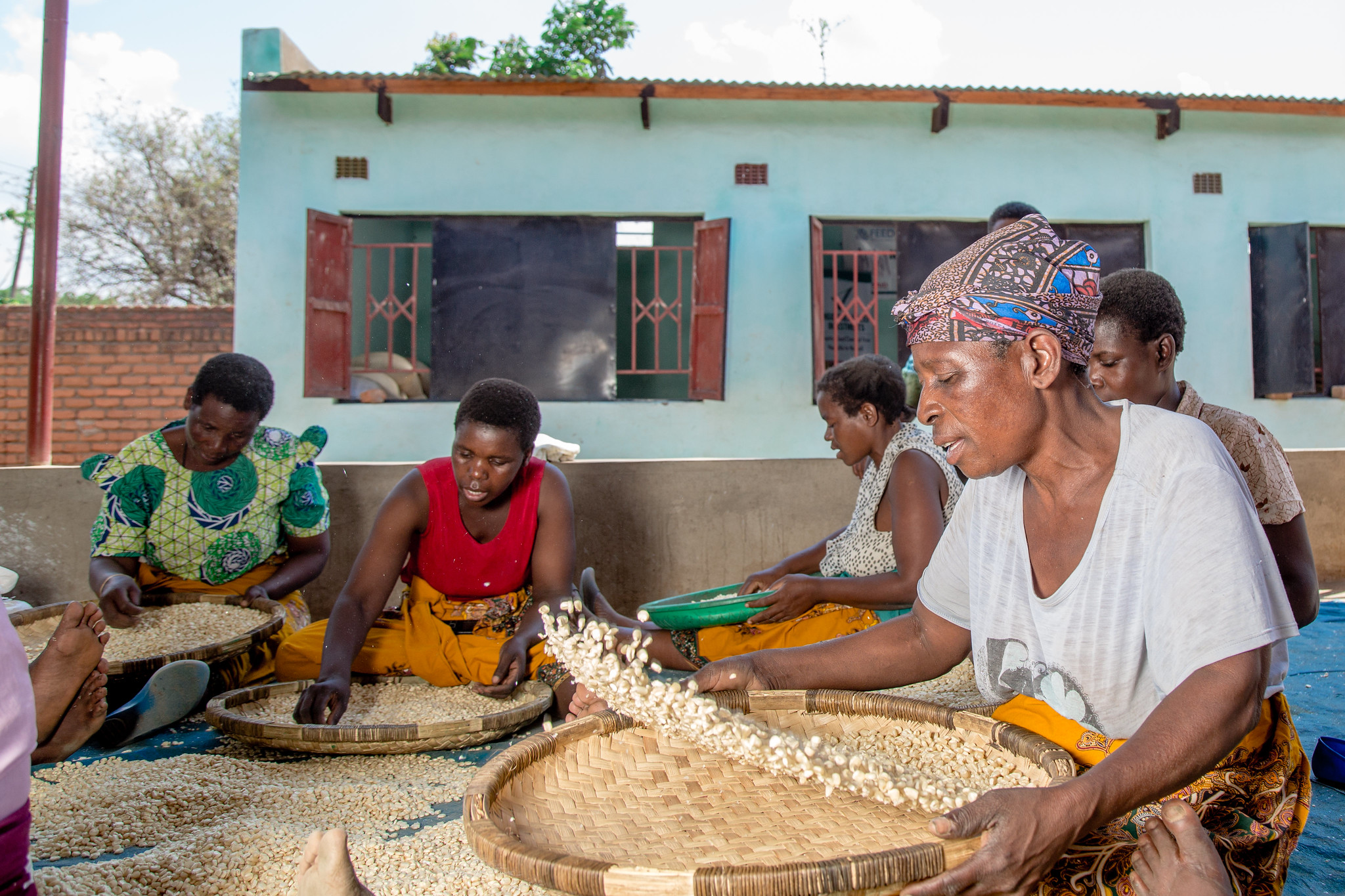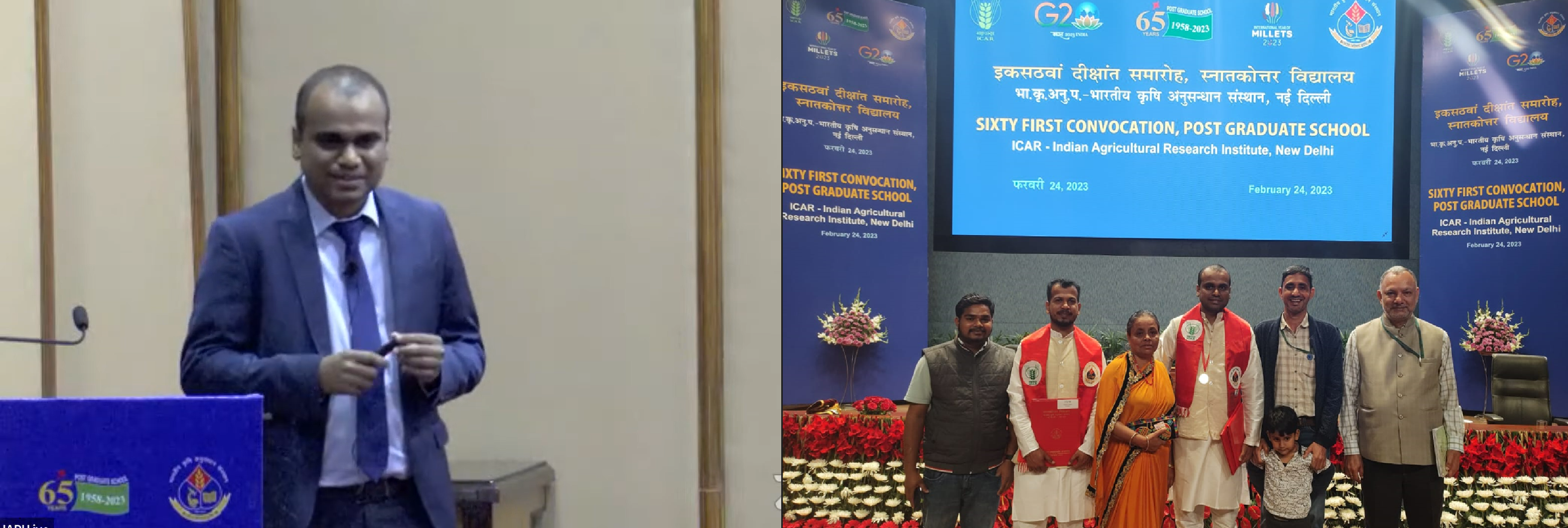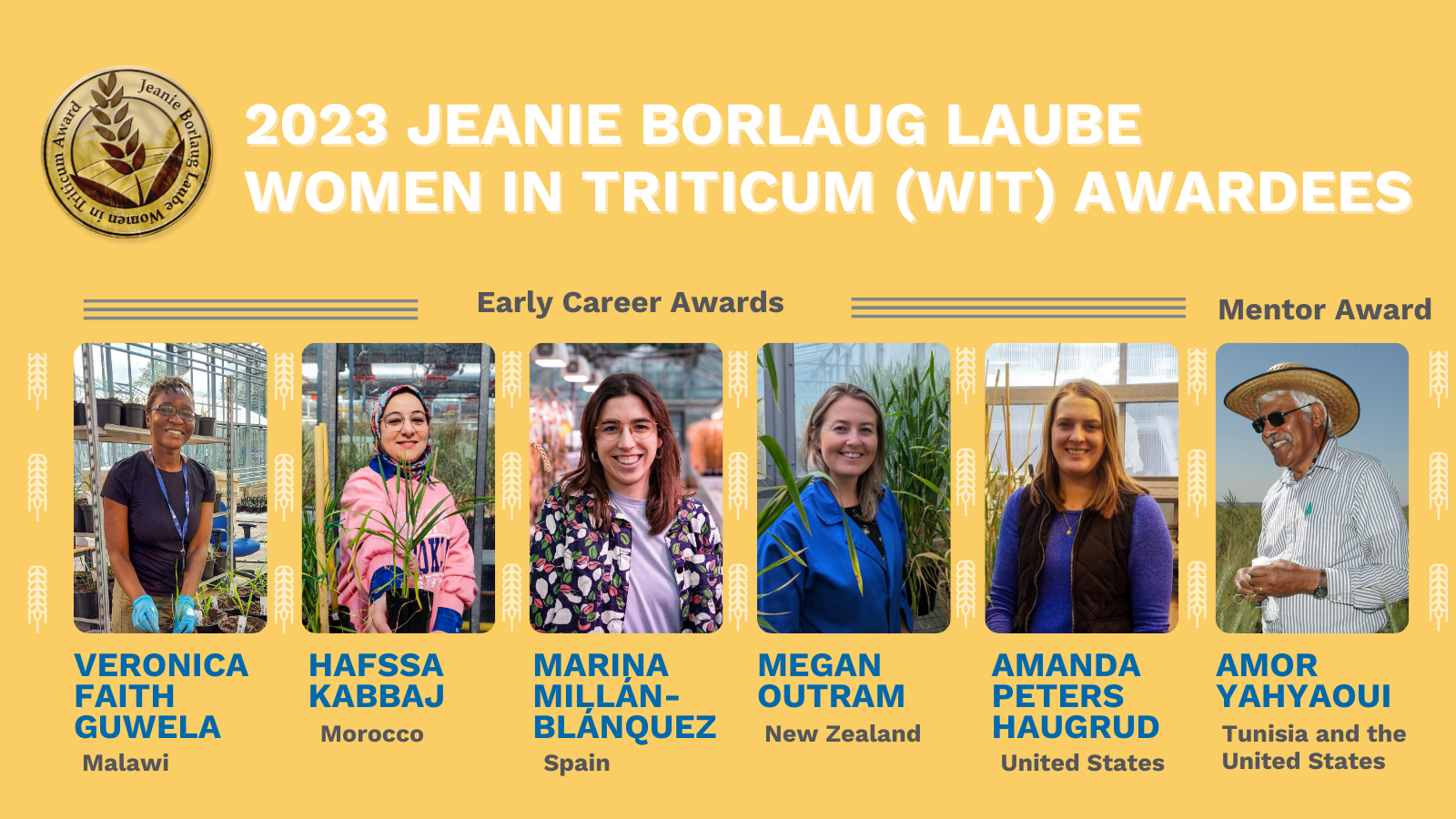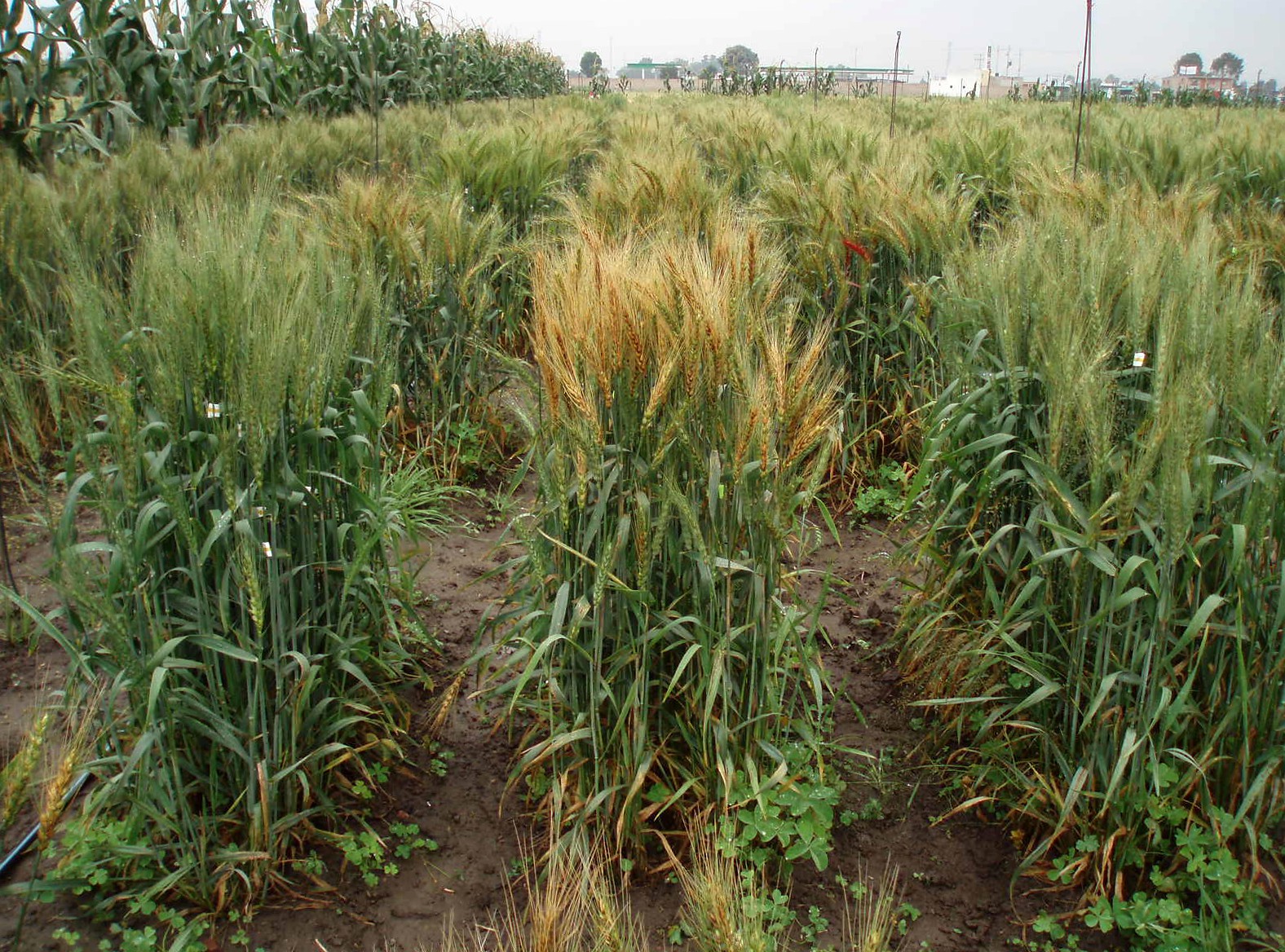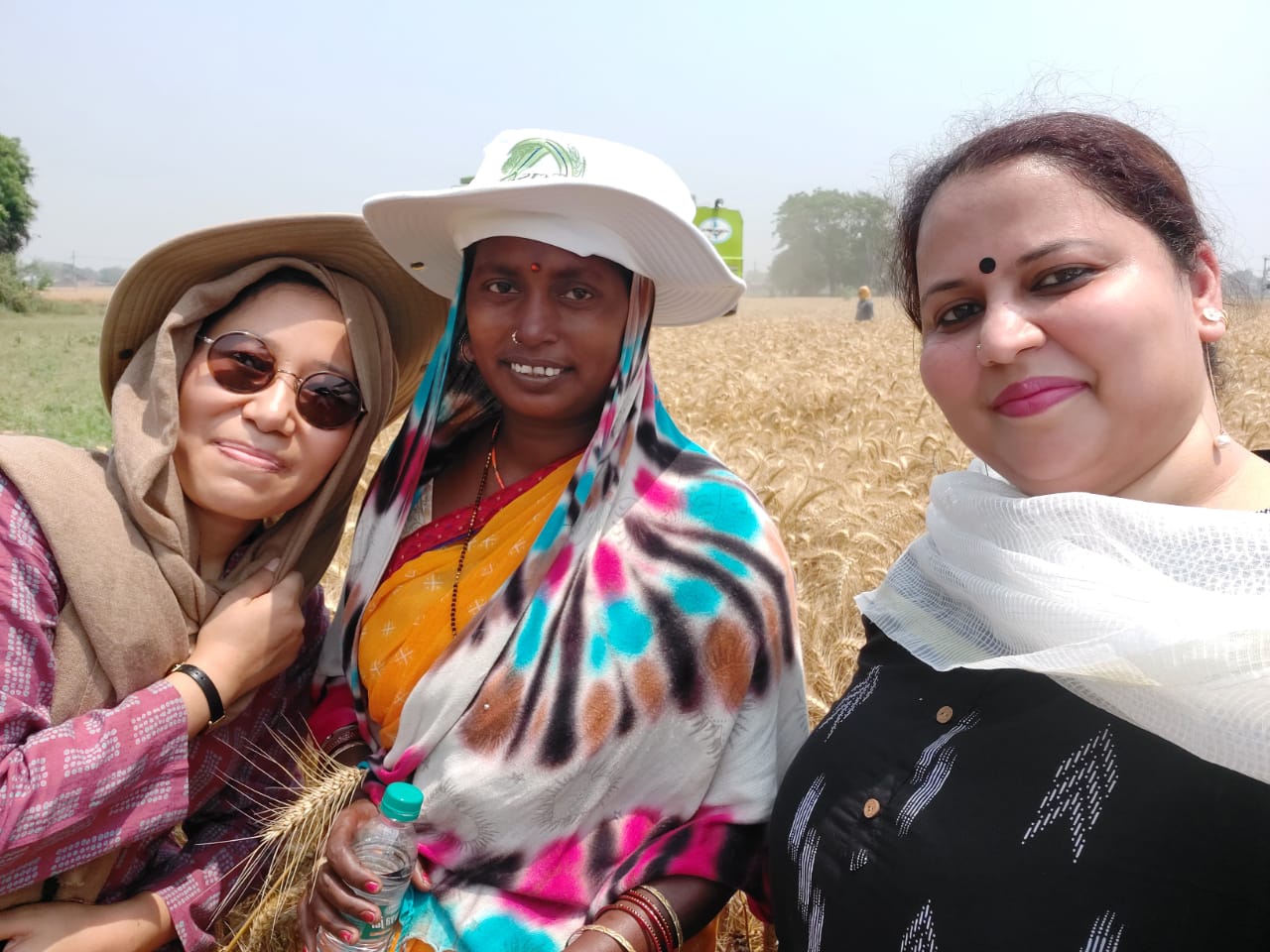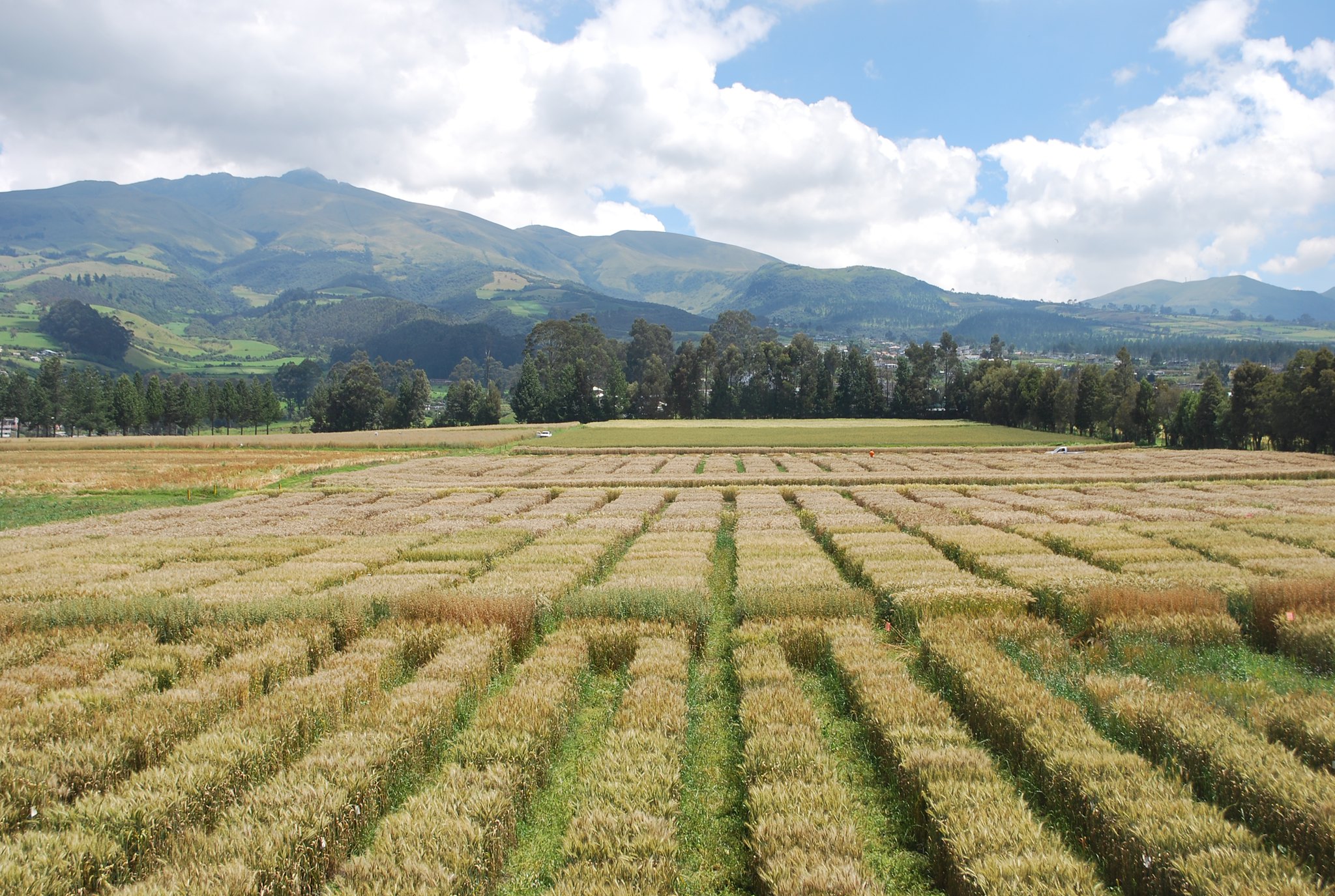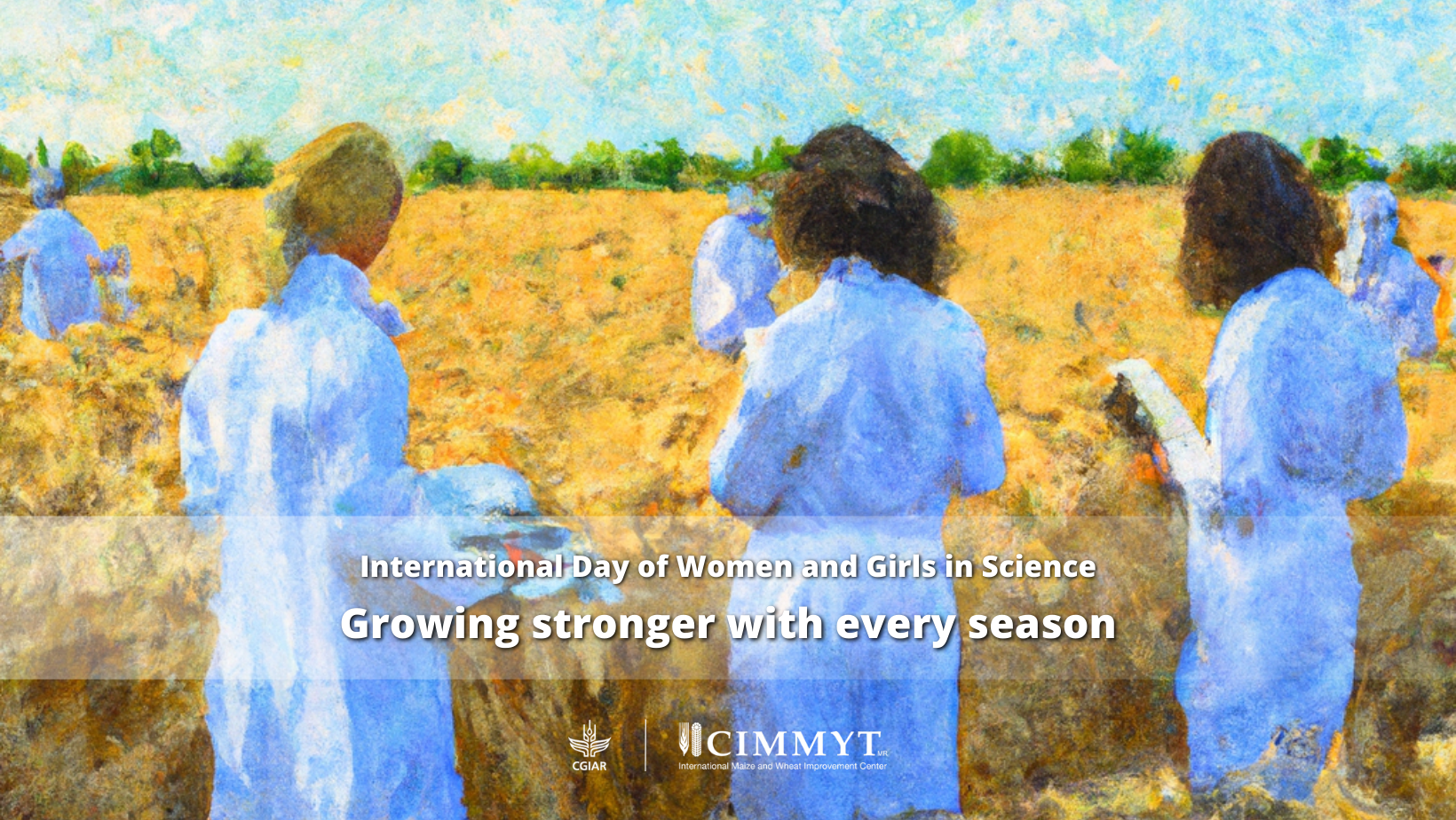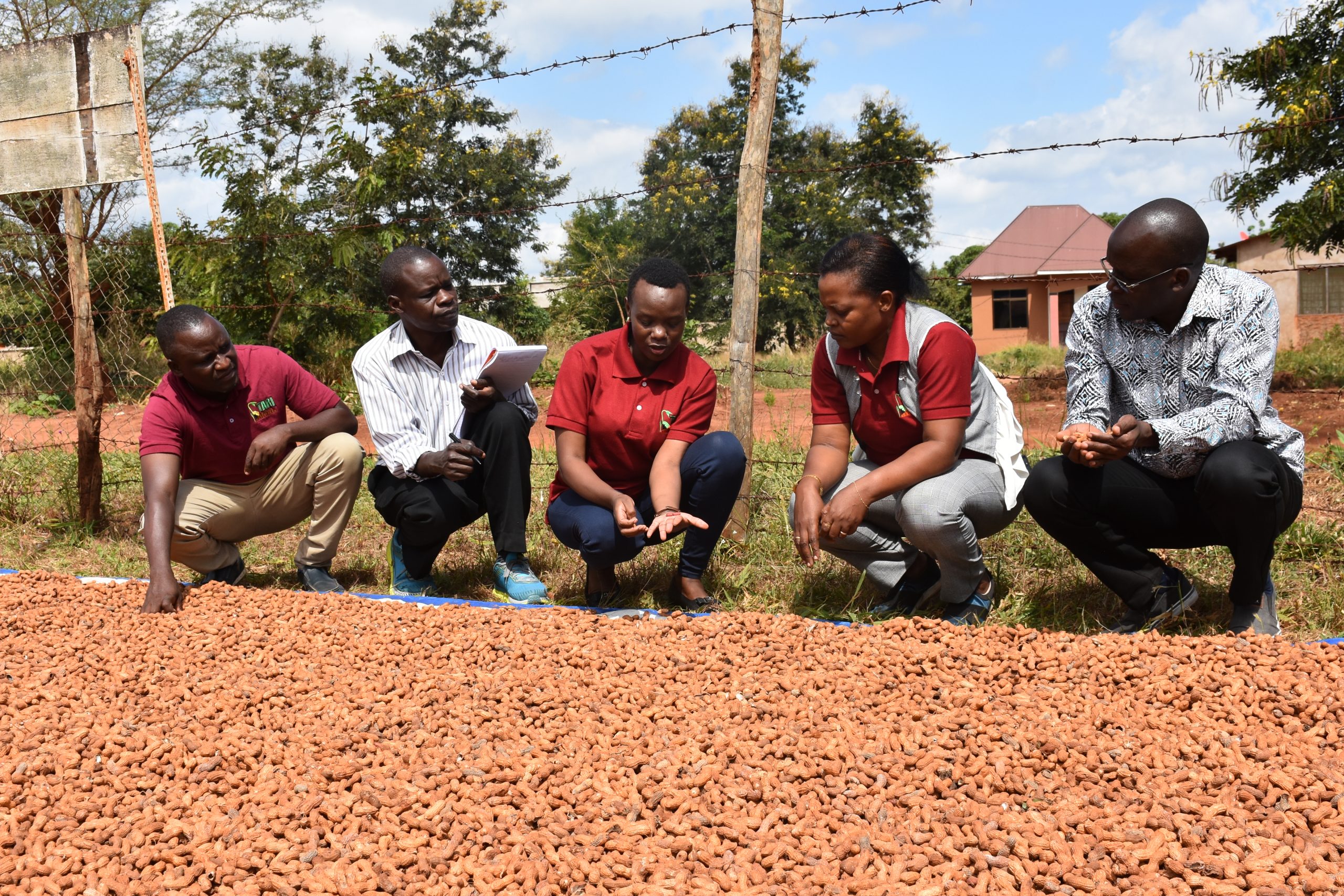Gender equality, youth and social inclusion
Gender and other social differences such as age, wealth and ethnicity, have an enormous influence upon the success of agricultural interventions. To ensure equitable impacts and benefits to rural people, CIMMYT emphasizes inclusive research and development interventions. Starting with the collection of data on gender and social differences, efforts are underway to address these gaps and ensure equitable adoption of technologies and practice. This includes working towards gender-equitable control of productive assets and resources; technologies that reduce women’s labor; and improved capacity of women and youth to participate in decision-making.
Closing the gender leadership gap: The power of women role models
 Gender equality, youth and social inclusion
Gender equality, youth and social inclusion
Be inspired. Be a catalyst of change. CIMMYT launches Catalysts of Change: Women Leaders in Science series.
Women Farmers And Technology: Key to Driving Agri Revolution in India
 Gender equality, youth and social inclusion
Gender equality, youth and social inclusion
Source: News 18 (16 Jun 2023)
Temina Lalani-Shariff, CGIAR regional director for South Asia, explains how mechanization technologies sustainably manage land and water systems for smallholders, enhancing food security and promoting gender equality in agriculture.
Community-Driven Science Paves the Way for Sustainable Development
 Gender equality, youth and social inclusion
Gender equality, youth and social inclusion
Source: Foodtank (16 Jun 2023)
In a new publication in Frontiers in Ecology, Sieg Snapp, Sustainable Agrifood Systems director, encourages researchers to generate findings and knowledge in collaboration with local communities to meet local needs and advance progress around the Sustainable Development Goals.
Alison Bentley announced as 2023 Borlaug CAST Communication Award recipient
 Gender equality, youth and social inclusion
Gender equality, youth and social inclusion
The annual award recognizes outstanding achievements and contributions by scientists, engineers, or other professionals in the agricultural, environmental, or food sectors to the advancement of science through communication in public policy fields.
Farmers on the Front Lines: Mexico’s Cacao Crops Are Recovering Thanks to Women Like This
 Capacity development
Capacity development
Source: Global Citizen (21 Apr 2023)
CIMMYT gender research helps the Agrovita program, a collaboration between PepsiCo and Proforest, a UK-based agriculture non-profit, to design and promote gender sensitive training programs for smallholder cacao farmers in Tabasco and Chiapas, Mexico.
The status of women in agri-food systems
 Gender equality, youth and social inclusion
Gender equality, youth and social inclusion
CIMMYT’s efforts to align with FAO recommendations to strengthen women’s roles in food systems.
Graduate of CIMMYT/ICAR partnership honored by Indian government
 Climate adaptation and mitigation
Climate adaptation and mitigation
Harisankar Nayak’s thesis honored at a ceremony hosted by India’s Vice President
2023 Women In Triticum (WIT) Award Winners Announced
 Gender equality, youth and social inclusion
Gender equality, youth and social inclusion
The Borlaug Global Rust Initiative (BGRI) is pleased to announce the 2023 Jeanie Borlaug Laube Women in Triticum (WIT) Early Career and Mentor awardees, recognizing excellence in science and leadership for a wheat-secure future.
One year of Women in Crop Science at CIMMYT
 Gender equality, youth and social inclusion
Gender equality, youth and social inclusion
For its first birthday, a co-founder of the Women in Crop Science at CIMMYT, talks about their journey over the past year.
Growing stronger with every season
 Gender equality, youth and social inclusion
Gender equality, youth and social inclusion
At CIMMYT, our Women in Crop Science network is working to create a more inclusive internal and external environment. Here’s a glimpse of a day in the life of our team.
Supporting the careers of women in science
 Gender equality, youth and social inclusion
Gender equality, youth and social inclusion
In an interview with Happy Makuru Daudi, she shares her career journey and why groundnut is a ‘woman’s crop’.


